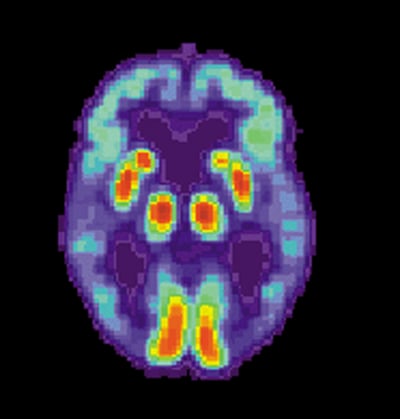In the search for new therapies that can treat a wide variety of neurodegenerative diseases, scientists are exploring the potential of nanobodies. Nanobodies are small, single-domain antibodies derived from heavy-chain-only antibodies found in camelids that often have excellent stability, specificity, and solubility. These antibodies have the potential to provide a number of benefits over traditional small-molecule drugs, monoclonal antibodies, and other therapies that are currently used to treat brain diseases.

US National Institute on Aging, Alzheimer's Disease Education and Referral Center,
Public domain, via Wikimedia Commons
However, like any new therapy, there is still much to learn about the use of nanobodies in treating brain diseases. In this post, we will explore the latest research and progress in this field, including the potential of nanobodies to treat diseases such as Alzheimer's, Parkinson's, and Huntington's.
The potential benefit of using nanobodies for treating Alzheimer's disease is actively being researched. Alzheimer's disease is characterized by the accumulation of amyloid-beta (Aβ) in the brain, which leads to the formation of plaques. The use of Aβ-targeting nanobodies has been shown to have therapeutic potential in preclinical studies. These studies showed that the nanobodies can both clear the Aβ deposits and decrease inflammation in the brain, which is associated with Alzheimer's disease.
For Parkinson's disease, nanobodies have also been identified as a potential therapeutic option. Misfolded and aggregated alpha-synuclein protein, which accumulates in the brain of Parkinson's patients, is a key pathological feature of Parkinson's disease. Recent studies have shown that nanobodies targeting alpha-synuclein can bind to these aggregates and, as a result, prevent neuronal cell death. This provides a promising prospect as no current therapies that target alpha-synuclein exist yet.
Huntington's disease is characterized by mutant huntingtin (mHTT) that accumulates in different areas of the brain, leading to various neuronal abnormalities. Recent research has shown that nanobodies targeting mHTT in Huntington's disease can decrease downstream mHTT toxicity. The research also suggests that nanobodies can both reduce toxic protein production and transport the mutant protein to the degradation machinery for proper clearance.
Nanobodies themselves have excellent stability, specificity, and solubility. They are further promising candidates for brain disease therapies because of their superior properties such as easier production (thus cost-effectiveness), longer half-life, higher target specificity, and fewer immunogenicity concerns. Recently, potent and selective nanobodies that target specific receptors on the surface of brain cells have been developed. Nanobodies have also shown excellent potential for treating diseases such as multiple sclerosis and amyotrophic lateral sclerosis.
Nanobodies have the potential to provide ideal therapies for treating brain disorders, with better specificity, stability and cost-effectiveness than other conventional therapies, including antibodies and small-molecule drugs. The latest research has demonstrated the potential of nanobodies to help clear pathogenic proteins in Alzheimer's, Parkinson's, and Huntington's disease. This research still needs to be confirmed by other independent studies, but they strongly support the view that nanobodies are a compelling class of next-generation therapies that holds huge promise to treat a diverse range of brain diseases. There is an opportunity to explore this area further, develop more novel nanobodies with better performance, better stability, and optimize existing nanobodies for clinical use and manufacturing efficiency over time. Leveraging nanobodies could improve patient outcomes and quality of life, as well as provide new insight into the pathogenesis of these devastating brain disorders.